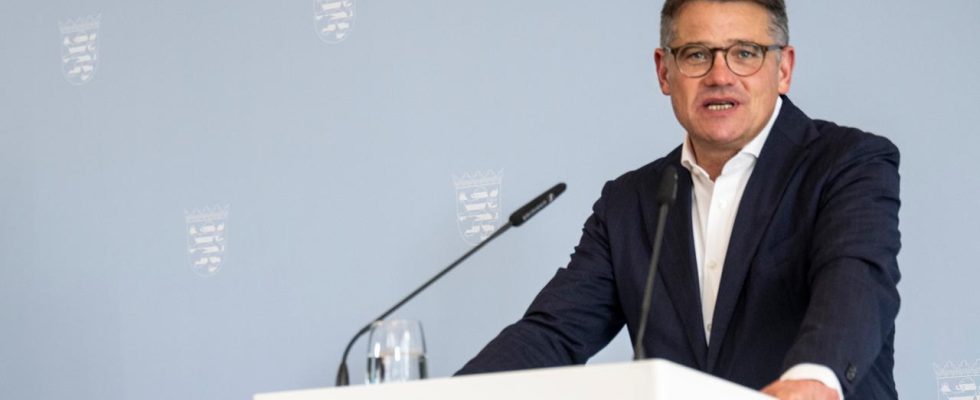Hesse’s Prime Minister Rhein considers the federal government’s financial contribution to refugee care to be too low. The countries were in great agreement before the meeting with the Chancellor on Monday. Other Union politicians are also putting pressure on it.
A few days before the federal-state meeting on migration, Chancellor Olaf Scholz is meeting with Union faction leader Friedrich Merz and CSU state group leader Alexander Dobrindt today to discuss the issue with them. Both sides have agreed to secrecy. Therefore, no results will likely be announced. A first conversation with Merz has already taken place.
The chairman of the Prime Minister’s Conference, Hesse’s Prime Minister Boris Rhein (CDU), demanded more money from the federal government for refugee care. He told the dpa news agency that in view of the significant increase in the number of migrants nationwide, the federal states would have to spend 17.6 billion euros this year alone. In addition, there would be a further 5.7 billion euros that the municipalities would bear.
According to Rhein, the federal government is only contributing 3.75 billion euros this year and wants to reduce the amount to 1.25 billion euros for 2024. “From the perspective of the states, this is unacceptable because the federal government is leaving the cities and communities alone with their problems.”
“Prime Ministers very agreed”
The Prime Minister wants to discuss financing with Scholz on Monday. The states are “very much in agreement” here across party lines, emphasized Rhein. They called for a return to the so-called breathing system: the more people come, the more the federal government has to pay: “Such a system is only fair, because the federal government alone has the key to controlling and limiting the number of refugees.”
There will also be discussion on Monday about a payment card for asylum seekers instead of cash: “That can reduce the incentive to come to Germany.” But it only makes sense if it is introduced nationwide, said Rhein. In addition, the federal government must conclude more functioning repatriation agreements with other countries.
Holetschek demands concrete results
“We no longer have time for another slide,” said Klaus Holetschek, CSU parliamentary group leader in the Bavarian state parliament, to the “Augsburger Allgemeine”. He made it clear that Scholz’s meeting with the states this time should not end without a concrete result: “If the traffic light government does not manage to solve this central problem, then it is unable to act and must draw the consequences.”
From his point of view, these can only be new elections “because the traffic lights have lost their raison d’être.” Holetschek is calling for, among other things, benefits in kind for asylum seekers instead of cash payments and more speed in the processing of asylum applications.
Free: Cut through the Gordian knot
The parliamentary managing director of the Union faction, Thorsten Frei (CDU), called for concessions from the Chancellor with a view to the meeting. “We have to finally cut the Gordian knot. That’s what people expect from politics,” he told the “Rheinische Post”.
The longer illegal migration to Germany continues on a large scale, the more “confidence in the state’s ability to act is lost,” added Frei. In the direction of Scholz, the CDU politician said: “If the traffic light coalition does not have the strength to make its own decisions, the Union is fundamentally ready to tackle these challenges.”

